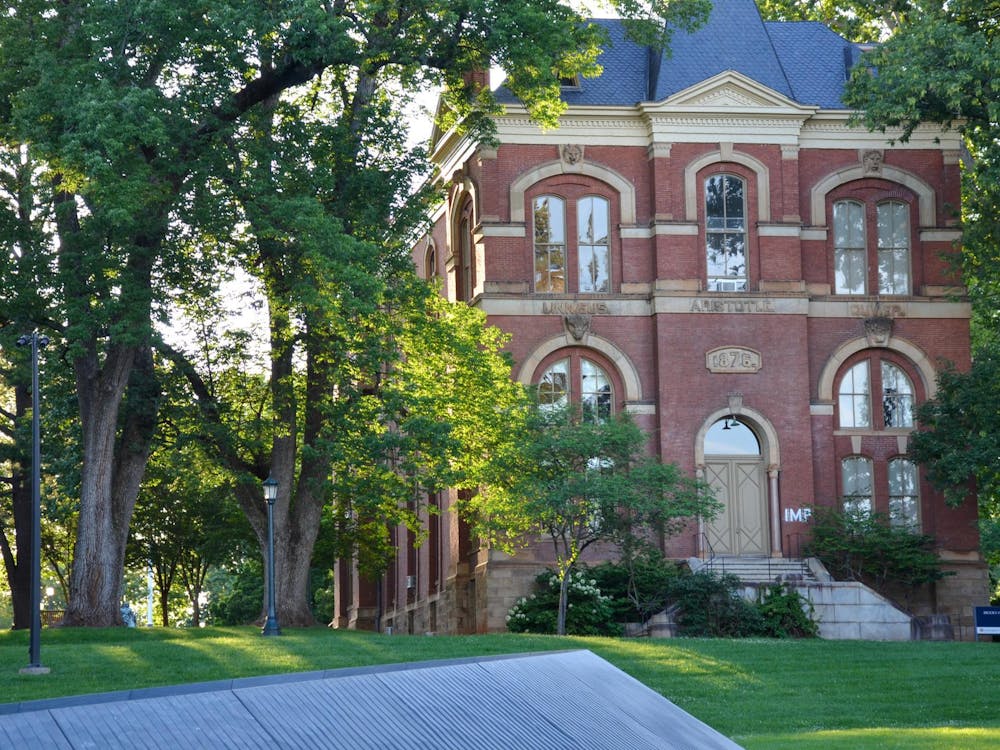A brief detour to the second floor of Alderman Library takes its visitors back in time as they step into the University's special collections to find rare books and hidden treasures.
The special collections department of the University library is composed of three major resources: rare books, manuscripts and University archives.
Special collections contains more than 300,000 rare books and over 12 million manuscripts in over 12,000 collection units, over 250,000 photographs and small prints and 8,000 reels of microfilm.
The University archives contain a wide array of materials ranging from e-mail correspondence to student examinations to personal faculty letters.
The University library moved from its original location in the Rotunda to Alderman Library in 1938. It was at that time that the library acquired its earliest collection, the Tracy W. McGregor Library of American History. The McGregor collection contains the first printing of the Declaration of Independence, the first printing of the Ordinance of 1787 that formed the Northwest Territory and a copy of the Federalist Papers.
The special collections department of the University library also has among its prized possessions such rare items as transcripts of Edgar Allen Poe's letters, a complete collection of William Faulkner's work and manuscripts from Walt Whitman's Leaves of Grass.
The next wave of American literature arrived in 1960 with the dedication of The Clifton Waller Barrett Library of American Literature.
The Barret Library is "one of the most important libraries of books," said Michael Plunkett, director of the Albert and Shirley Small Special Collections Library. "The American literary materials is among the best in the world."
University President John T. Casteen III is one of many who have worked in the hallowed halls of the special collections library. Casteen worked there as a student assistant from 1962-1970. Casteen started his job sorting and filing papers and preparing materials for the vault.
By 1965, he worked on independent projects under the direction of his boss, Anne Freudenberg.
As a junior associate, Casteen worked specifically with the library's Jefferson collections.
Casteen and the other four or five students who worked with him each had their own supervisor or mentor. These staff provided "a second education for us," he said.
Casteen had the opportunity to meet twentieth century American writer John dos Passos when the author visited special collections to work on revised editions of his work, he added.
"I loved the discovery that always waits for you in primary materials and the immediacy of contact with writers and historical figures represented in collections," Casteen said.
The John dos Passos collection contains manuscripts of his novels, plays, poems, articles, speeches, lectures and readings. Correspondence with close literary friends such as e.e. cummings and Ernest Hemingway also are part of the collection.
"These collections cut through the haze of time and bring real people back to life," Casteen said.
University students continue to work at the special collections library as their president once did while attending the University.
"They're an integral part of the function of the library," Plunkett said.
While the Barrett and McGregor collections are among the largest of the special collections libraries, in 1999 the University received more than 400 items from the estate of American philanthropist Paul Mellon. The collection contains rare books, manuscripts, maps and atlases, primarily dealing with Virginia and American history.
The Mellon collection also includes items from the Revolutionary and Civil Wars and the Lewis and Clark expedition.
The University's special collections is "one of the strongest in the country - especially in the Southeast," Plunkett said.
Not all of the library's materials stem from large collections comparable to that of McGregor, Barrett and Mellon. In fact, Plunkett said small items from University alumni contribute to the quality and size of the library's collection.
Sometimes, however, the library receives donations that need special care. In order to preserve its many rare materials, special collections often removes metal from documents and flattens out manuscripts. Documents then are contained within an acid-free environment in order to maintain their original condition.
If a document needs further care, special collections sends it to a special conservatory where individuals trained in preservation restore it.
While the rare books and manuscripts in the special collections library are delicate, all members of the public have access to its resources.
Special collections places extra emphasis on undergraduate use of research materials, said Lynda Clendenning, interim director of the Mary and David Harrison Institute.
History Prof. Phyllis Leffler has used special collections in conjunction with her course, HIUS 330: "U.Va. in the 20th Century." Leffler's students predominantly have used the University archives to obtain Lawn surveys and the Oral History Collection.
Non-University affiliates can gain access to special collections documents upon appointment and after filling out a registration form with picture identification.
Scholars from all over the United States take advantage of the University's special collections, Plunkett said.
Special collections receives at least 150 requests each year from outside publications, wishing to use its materials for their publications, he said.
Scholars from other colleges and Universities also make arrangements to view materials for academic research, he added.
By January 2004, special collections will have a new home in the place of Miller Hall. Gifts from alumni Mary and David Harrison and Albert and Shirley Small have made this new building possible.






